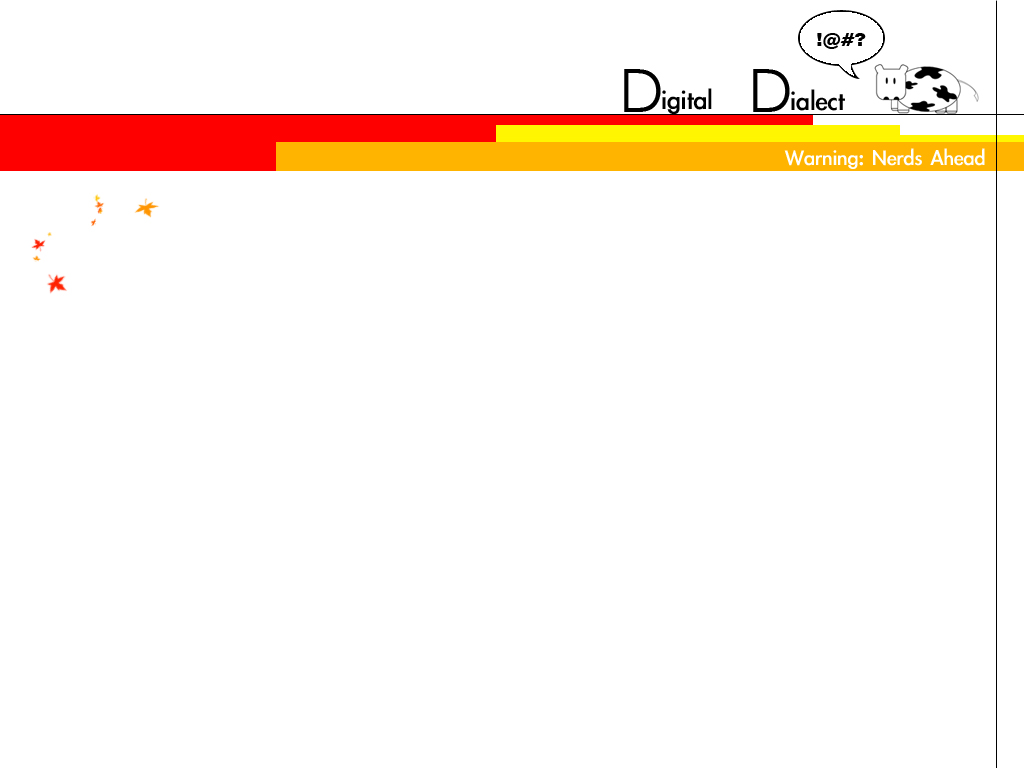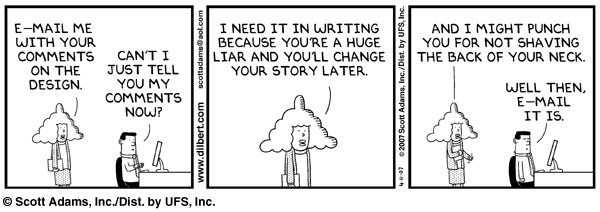
Welcome
Welcome to Digital Dialect, a place to see, learn about, and experience what we call today as “digital” communication.
What can we define as dialect in the digital world?
The Web and Our World as One
In our physical world, human vernacular is spoken word from person to person. However, in the digital world, our words are transformed into streams of data and information so that a computer can process, break down, and re-assemble our voice to someone else as audio.
Likewise, video communication breaks down the very physical barriers between our world and The Web. When thinking about the sheer mechanics of video technology, video breaks down our own physical environment, turns us into digital information, and reassembles our own bodies into a form that can be seen on a screen.
In a sense, we are involuntarily swept into the world that is The Web by using these mediums of dialect. The conjunction of the two compels us to re-think our own selves as digital entities. Then, are we, by these means, “digital” people leading “digital” lives?
Marc Prensky analyzes this question by coining these people “Digital Natives.” He quotes:
…the Digital Native generation is moving ahead in its own direction. It’s headed, inexorably, to incorporating its birthright – digital technology – into its life…Today norms and behaviors are changing much faster than in the past, because the technology changes rapidly and the Digital Natives are programmed to – and want to – keep up with it (4).
It’s interesting, no, more like scary, to note that Prensky uses the word “programmed” to describe the upcoming digital generation. Perhaps the union of man and machine is closer than we think.
Hey, what about that thing called text? Lolz
Text can be seen as the primordial language of The Web. After all, how could we input any commands into a computer without typing it first? Or should I rather ask, in regard to digital dialect, how else could we wall post on Facebook?
Text is easily the most accessible and widely used medium. Text-based messaging such as email and instant messaging has become the norm since its genesis. A pseudo combination of email and instant messaging exists in forums, MySpace, and Facebook, where text messages can be displayed publicly or privately within a community of users rather than strictly person to person.
But what is missing from text lies within its inherent format. Text is, by nature, letters, words, symbols, etc. on a page. It lacks human emotion, not to the extent of the words conveyed, but rather, a sense of reality and cues such as voice fluctuations and facial expressions. (refer to emoticons later in text page and interesting note about culture of text like lolz, roflz, etc.)
What we choose to use as a method of digital dialect can perhaps be determined by the ease of use, the current trend, or the “cool” new thing to do. While text remains a dominant contestant for digital dialect today, what makes other mediums like audio or video more attractive?
You’ll find out here.






